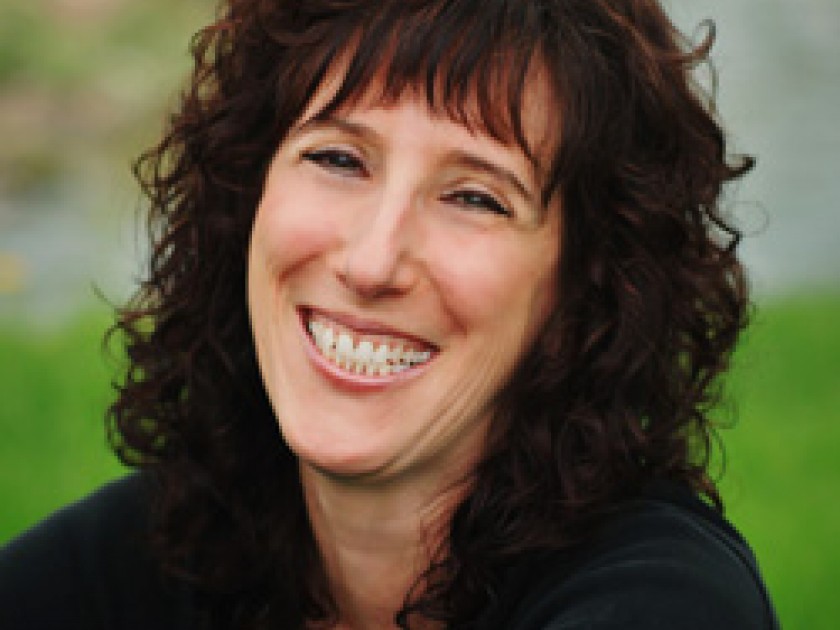
Celebrate Jewish Book Month with #30days30authors! JBC invited an author to share thoughts on #JewLit for each day of Jewish Book Month. Watch, read, enjoy, and discover!
Today, Lynda Schuster, the author of Dirty Wars and Polished Silver: The Life and Times of a War Correspondent Turned Ambassatrix, writes a tribute to a hero of hers, Nora Ephron.
While writing my memoir, Dirty Wars and Polished Silver, I happened on a quote in Not I, Joachim Fest’s magisterial account of his family’s resistance to the Nazis while Fest was growing up in Germany in the 1930s and 1940s:
One does not, in retrospect, record what one has experienced,but what time — with its increasing shifts in perspective, withone’s own will to shape the chaos of half-buried experiences — has made of it. By and large, one records less how it actuallywas than how one became who one is.
I thought it a perfect epigraph to any memoir and happily attached it to mine. But the words looked so solemn, sitting there on the page in all their eloquent wisdom. And my book, while covering such weighty matters as death and love lost, is anything but grave. The obvious solution to injecting a bit of levity as counterbalance? Why, juxtapose the excerpt with the late, great Nora Ephron’s iconic quote, “Everything is copy.” Of course.
Ephron, the journalist, blogger, screenplay writer and director who died in 2012, was and is my hero. In her writing, she combined a feminist’s sensibility with the ability to turn pain into laughter — the latter the very essence of Jewish humor. To quote the protagonist in her novel, Heartburn, the thinly disguised tale of the collapse of her marriage to Watergate journalist Carl Bernstein after he took up with another woman while Ephron was pregnant, “Because if I tell the story, I can make you laugh, and I would rather have you laugh at me than feel sorry for me. Because if I tell the story, it doesn’t hurt as much. Because if I tell the story, I can get on with it.”
Heartburn, for my money, is a classic: smart, hysterically funny, bittersweet, with set pieces and gag lines to rival those of the Marx Brothers. In the world of comedic writing, Ephron was to women what Woody Allen is to men, only better. After all, who could forget Meg Ryan’s feigned orgasm scene in a deli in “When Harry Met Sally” — or the response of the woman sitting at the next table, who tells the waiter, “I’ll have what she’s having.”
But Ephron’s genius was more than just witty one-liners. (“If pregnancy were a book, they would cut the last two chapters;” “In my sex fantasy, nobody ever loves me for my mind.”) Rather, she had the unique ability to translate personal experiences into writing that resonated deeply with readers and moviegoers. Despite a proclivity for perhaps too-tidy endings, she nailed male-female relationships in her films. And, while we’re at it, the ignominy of aging – particularly for women – in her later essay collections, I Feel Bad About My Neck and I Remember Nothing. As Gail Collins, the New York Times columnist, said of Ephron, “It takes a particular combination of winning voice and brutal candor, of intimacy and objectivity, to turn what happens to you into a story that means something to the wider world.”
I just wish she were still around to give us her take on the spate of sexual misconduct and assault allegations that have recently come to light against male luminaries in journalism, Hollywood, politics and the like. No doubt it would be wry and insightful and ironic and, of course, funny. To say nothing of beautifully crafted. Because Ephron always managed to make the stringing together of words look easy. This, despite her sage analysis of the author’s craft, a fitting way to end a post celebrating Jewish Book Month: “The hardest thing about writing is writing.”
Lynda Schuster is a former foreign correspondent for the Wall Street Journal and Christian Science Monitor. She reported from Central and South America Mexico the Middle East and Africa. Her writing has appeared in the New York Times Sunday Magazine, The Atlantic, Granta, and Utne Reader. She is also the author of A Burning Hunger: One Family’s Struggle Against Apartheid.